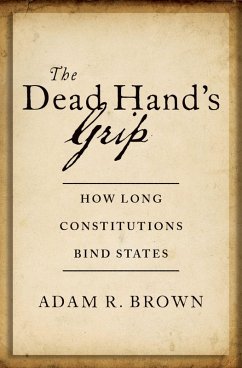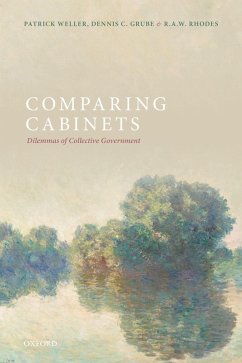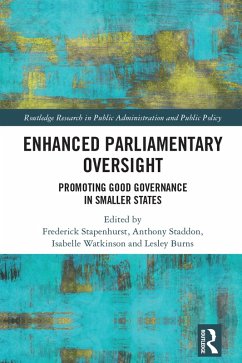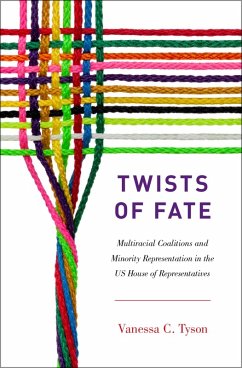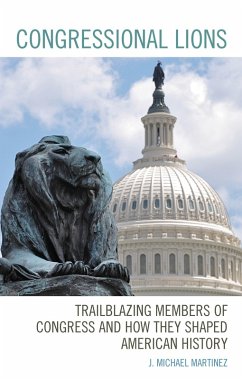
The Dead Hand's Grip (eBook, PDF)
How Long Constitutions Bind States
Versandkostenfrei!
Sofort per Download lieferbar
34,95 €
inkl. MwSt.
Weitere Ausgaben:

PAYBACK Punkte
17 °P sammeln!
In The Dead Hand's Grip, Adam R. Brown examines constitutional specificity--or length--as a new way to evaluate how different polities govern citizens and regulate themselves. As Brown shows, many states and nations bloat their constitutions with procedural and policy details that other polities leave to statutory or regulatory discretion. American state constitutions vary in length from under 9,000 to almost 400,000 words. Constitutional endurance has often provoked fears that the dead hand of the past may reach into the present; lengthy constitutions strengthen the dead hand's grip, binding ...
In The Dead Hand's Grip, Adam R. Brown examines constitutional specificity--or length--as a new way to evaluate how different polities govern citizens and regulate themselves. As Brown shows, many states and nations bloat their constitutions with procedural and policy details that other polities leave to statutory or regulatory discretion. American state constitutions vary in length from under 9,000 to almost 400,000 words. Constitutional endurance has often provoked fears that the dead hand of the past may reach into the present; lengthy constitutions strengthen the dead hand's grip, binding states to a former generation's solutions to modern problems. Brown argues that excessive constitutional specificity restricts state discretion, with three major results. First, it compels states to rely more frequently on burdensome amendment procedures, increasing constitutional amendment rates. Second, it increases judicial invalidation rates as state supreme courts enforce narrower limits on state action. Third and most importantly, it results in severely reduced economic performance, with lower incomes, higher unemployment, greater inequality, and reduced policy innovativeness generally. In short, long constitutions hurt states. While Brown's analysis focuses on just one set of sub-national constitutions, their broad functions make his thesis relevant to those wanting to understand institutional variation between nations.
Dieser Download kann aus rechtlichen Gründen nur mit Rechnungsadresse in A, B, BG, CY, CZ, D, DK, EW, E, FIN, F, GR, HR, H, IRL, I, LT, L, LR, M, NL, PL, P, R, S, SLO, SK ausgeliefert werden.




